Our diet plays a vital role in overall health, but its effect on oral health is often overlooked. From tooth enamel strength to gum health, what we eat significantly impacts our smiles. In this blog, we’ll explore how dietary choices shape oral health, the best foods for maintaining healthy teeth, and tips for reducing risks of cavities and gum disease.
How Diet Affects Oral Health
Diet influences oral health through a variety of mechanisms, such as providing nutrients to strengthen teeth and gums, or promoting conditions that lead to decay and disease. Let’s break down the key factors:
Sugar and Its Role in Tooth Decay
Sugary foods and drinks are a primary culprit behind cavities. When sugar interacts with bacteria in the mouth, it produces acid that attacks tooth enamel. Over time, this leads to demineralization, causing cavities and sensitivity.
- Common High-Sugar Foods: Sodas, candies, pastries, and processed snacks.
- Hidden Sugars: Watch out for sugar in foods like ketchup, salad dressings, and flavored yogurts.
Acidic Foods and Tooth Enamel
Acidic foods, such as citrus fruits, vinegar-based dressings, and carbonated beverages, can erode enamel over time. While these foods are often healthy, consuming them in moderation and pairing them with enamel-protecting practices is essential.
Nutrition for Gum Health
A nutrient-rich diet helps maintain strong gums and reduce inflammation. Deficiencies in vitamins C and D, as well as calcium, can lead to gum disease or exacerbate existing oral health issues.
Foods That Promote Healthy Teeth and Gums
The foods you eat can actively strengthen teeth, fight bacteria, and protect gums. Let’s explore some oral health superfoods:
Calcium-Rich Foods for Strong Teeth
Calcium is essential for tooth enamel and bone strength. Foods such as milk, cheese, yogurt, and leafy greens provide this mineral in abundance. Additionally, calcium aids in neutralizing acids in the mouth.
Vitamin-Rich Fruits and Vegetables
- Vitamin C: Found in oranges, strawberries, and broccoli, vitamin C supports gum health by boosting collagen production and reducing inflammation.
- Vitamin D: Essential for calcium absorption, vitamin D can be obtained from fortified foods, eggs, and sunlight exposure.
Foods That Naturally Clean Teeth
Crunchy fruits and vegetables, such as apples, carrots, and celery, act as natural toothbrushes, stimulating saliva production and removing food particles from teeth.
Hydrating Foods and Water
Staying hydrated is crucial for oral health. Water rinses away debris and helps maintain optimal saliva levels, which neutralize acids and protect teeth.
Foods to Avoid or Limit for Better Oral Health
While some foods nourish your oral cavity, others can be detrimental. Moderation and mindful eating are key:
Sticky and Sugary Treats
Sticky candies and dried fruits cling to teeth, providing bacteria with a prolonged sugar source. Opt for less sticky alternatives or rinse your mouth after consumption.
Sugary Beverages and Alcohol
Sodas and energy drinks are high in sugar and acid, creating the perfect environment for enamel erosion. Similarly, alcohol reduces saliva production, leaving the mouth vulnerable to bacteria and acid attacks.
Highly Processed Foods
Processed snacks often lack essential nutrients and are high in refined sugars and starches, which fuel bacteria in the mouth.
Tips for a Mouth-Healthy Diet
Improving your diet doesn’t have to be complicated. Follow these simple tips to support your oral health:
Balance Is Key
Maintain a balanced diet rich in fruits, vegetables, lean proteins, and whole grains. Limit processed and sugary foods, and consume them as part of a meal rather than alone to minimize their impact on teeth.
Pair Foods Strategically
Pair acidic foods with calcium-rich foods to mitigate enamel erosion. For example, eat cheese or yogurt after consuming citrus fruits.
Practice Good Timing
Snacking throughout the day keeps sugar and acid levels high in your mouth. Instead, enjoy designated meal times and limit snacking.
Rinse and Brush
After eating sugary or acidic foods, rinse your mouth with water or chew sugar-free gum to neutralize acids. Wait 30 minutes before brushing to avoid damaging softened enamel.
The Connection Between Diet and Professional Dental Care
While a good diet can significantly improve oral health, regular visits to a dental professional remain essential. Your dentist can detect early signs of decay or gum disease and recommend tailored treatments to enhance your diet’s effectiveness.
Professional cleanings remove stubborn plaque and tartar that dietary habits alone can’t prevent. Combining professional care with healthy eating habits ensures long-term oral health.
Conclusion:
Your diet is one of the most powerful tools for maintaining a bright, healthy smile. By choosing nutrient-rich foods, limiting sugary and acidic items, and following oral hygiene best practices, you can protect your teeth and gums for years to come.
At DFAesthetics, we’re passionate about helping our patients achieve optimal oral health. Whether you’re due for a cleaning or need personalized advice on improving your diet for dental wellness, our team is here to help.
Contact us today to schedule your appointment and take the first step toward a healthier smile!

